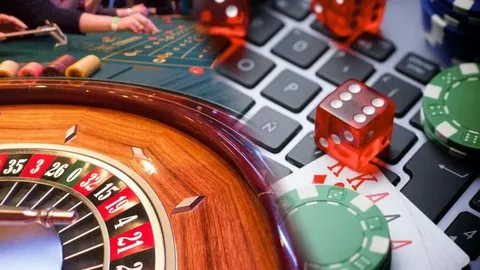Stepping into a casino, can feel like entering a world of chance and excitement. But beneath the flashing lights and the calls of the croupiers lies a carefully constructed system designed to be entertaining while ensuring the casino maintains a long-term advantage.1 Here’s a breakdown of how kingph casino games fundamentally work:
1. The House Edge: The Casino’s Built-In Advantage
The cornerstone of how casino games operate is the house edge. This is the statistical advantage that the casino has over players in the long run. It’s not about cheating; it’s inherent in the rules and payouts of each game. The house edge is usually expressed as a percentage of the player’s bet.
- Example: If a game has a 5% house edge, it means that for every $100 wagered on that game over a long period, the casino expects to keep $5 in profit, while $95 is returned to players as winnings.
The house edge ensures the casino’s profitability over time, covering their operating costs and generating revenue. While players can certainly win in the short term, the mathematics of the games favor the house in the long run.
2. Random Number Generators (RNGs): The Heart of Chance
In modern casino games, especially online slots and video poker, the outcome of each round is determined by Random Number Generators (RNGs).2 These are sophisticated computer algorithms that produce sequences of numbers that are virtually impossible to predict
- How they work: When you spin the reels of an online slot or deal a hand in video poker, the RNG instantly generates a random number. This number corresponds to a specific combination of symbols on the reels or a particular set of cards.3
- Ensuring Fairness: Reputable online casinos and gaming machine manufacturers use certified RNGs that are regularly tested by independent third-party organizations to ensure their fairness and randomness.4 This guarantees that the outcomes are not manipulated.
3. Paytables and Odds: Understanding Potential Payouts
Each casino game has a paytable that outlines the payouts for different winning combinations.5 These paytables are directly linked to the odds of those combinations occurring.
- Lower Odds, Higher Payouts: Combinations that are statistically less likely to occur typically have higher payouts. For example, hitting a specific single number in Roulette has lower odds but a higher payout than betting on red or black.
- House Edge Reflected in Paytables: The house edge is built into the paytable by offering payouts that are slightly less than the true odds of winning. For instance, in a game with a 1 in 6 chance of winning a particular bet, the payout might be less than 5 to 1, giving the house an edge.
4. Game Mechanics: The Rules of Play
The specific rules of each casino game dictate how players interact with the game and how winning outcomes are determined.
- Card Games (Blackjack, Baccarat, Poker): These involve dealing cards, player decisions (hitting, standing, betting), and hand rankings.6 The rules define when players can take actions and how winning hands are determined.7
- Dice Games (Craps): Players bet on the outcome of dice rolls, with various betting options and specific rules governing winning and losing conditions for each bet.8
- Slot Machines: Players spin reels with symbols, and payouts are awarded for matching combinations along designated paylines.9 Modern slots often include bonus features, free spins, and progressive jackpots with unique triggering mechanisms.10
- Roulette: Players place bets on a numbered wheel, and the outcome depends on where a ball lands after the wheel is spun.11
5. Player Decisions and Strategy:
In some casino games, like Blackjack and certain variations of Poker and Video Poker, player decisions can influence the outcome and potentially reduce the house edge (when played optimally).12 Understanding and applying basic strategies is key in these games. However, even with perfect strategy, the house still retains a slight mathematical advantage in the long run.
In essence, casino games are designed around mathematical probabilities that give the house a long-term advantage.13 Randomness, controlled by RNGs in modern games, ensures fair outcomes on each individual play.14 Players engage with the games based on specific rules and paytables, hoping for short-term wins while understanding the inherent statistical edge held by the casino.15
Remember, the primary purpose of casino games is entertainment. While the possibility of winning exists, it’s crucial to approach them with a clear understanding of how they work and to gamble responsibly.




